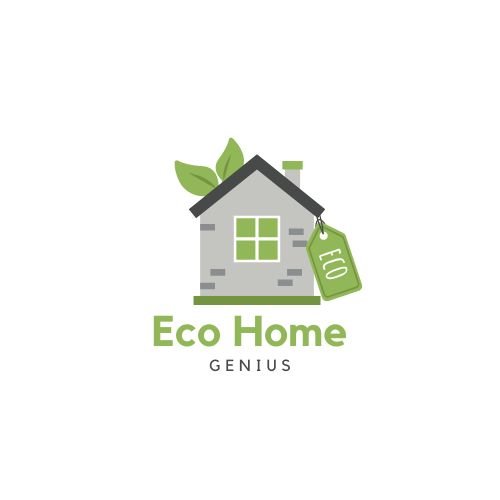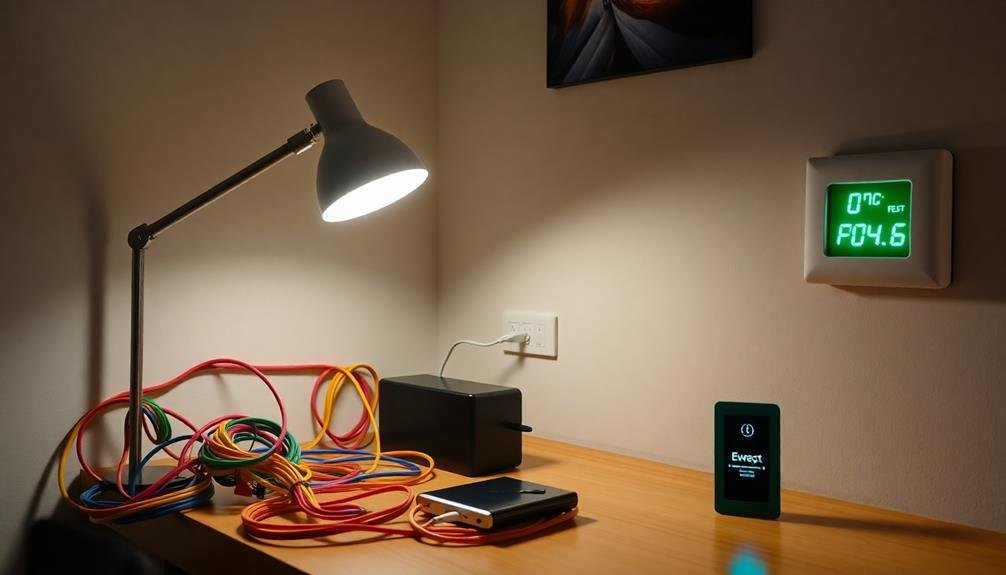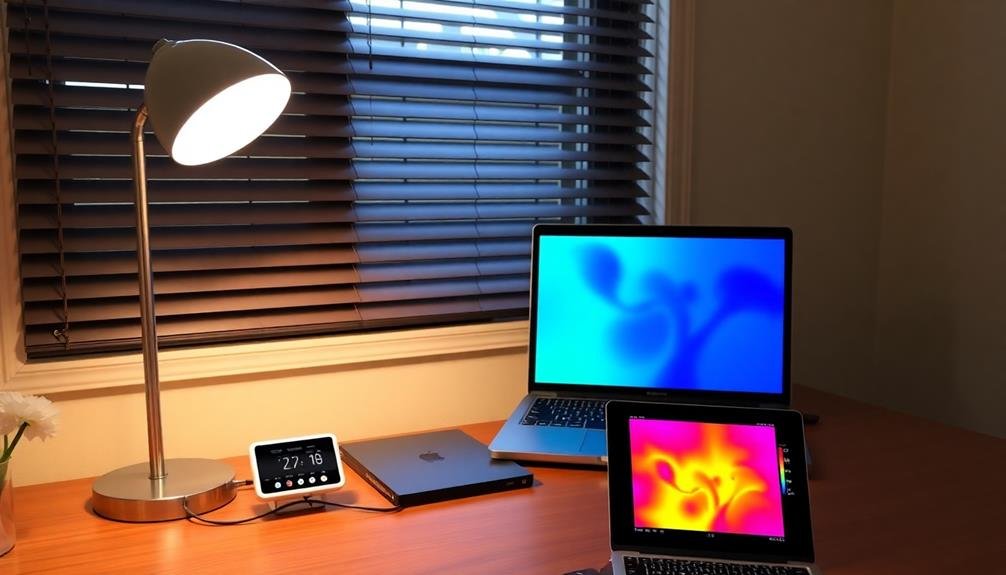Geothermal systems offer superior energy efficiency, producing 3-6 units of energy for every unit of electricity used, compared to standard HVAC's 100% efficiency. You'll enjoy lower environmental impact, reduced heating and cooling costs by up to 70%, and consistent indoor comfort. While upfront costs are higher, geothermal systems last 20-25 years and pay for themselves in 5-10 years. They require less maintenance, operate quietly, and provide even air distribution. With technological advancements like smart controls and improved heat exchange, geothermal systems are becoming increasingly sophisticated. Discover how this revolutionary technology can transform your home's climate control experience.
Energy Efficiency Comparison

Geothermal systems' energy efficiency outshines that of standard HVAC systems by a significant margin. When you compare the two, you'll find that geothermal systems can achieve efficiency ratings of 300-600%, while traditional HVAC systems typically max out at 100% efficiency. This means geothermal systems can produce 3-6 units of energy for every unit of electricity consumed.
You'll notice the difference in your energy bills, as geothermal systems can reduce heating and cooling costs by up to 70%. They achieve this by tapping into the earth's constant temperature, which remains steady year-round, unlike outdoor air temperatures that fluctuate dramatically. This stability allows geothermal systems to operate more consistently and efficiently.
Moreover, geothermal systems don't rely on combustion for heating, eliminating the need for fossil fuels and reducing carbon emissions. They also require less maintenance and have longer lifespans than standard HVAC systems.
While the initial investment may be higher, the long-term energy savings and environmental benefits make geothermal systems a smart choice for eco-conscious homeowners looking to reduce their carbon footprint and energy costs.
Environmental Impact Assessment
When considering the environmental footprint of heating and cooling systems, it's important to look beyond energy efficiency. Geothermal systems have a notably lower impact on the environment compared to standard HVAC systems.
You'll find that geothermal systems produce fewer greenhouse gas emissions, as they don't burn fossil fuels on-site. They also don't release any harmful refrigerants into the atmosphere, unlike many conventional air conditioners.
The longevity of geothermal systems means you'll replace them less frequently, reducing waste and resource consumption.
However, you should consider the initial environmental impact of installing a geothermal system. The excavation process for ground loops can temporarily disrupt local ecosystems. But once installed, these systems have minimal ongoing environmental effects.
Standard HVAC systems, on the other hand, contribute more to air pollution and rely heavily on electricity from potentially non-renewable sources. They also require more frequent maintenance and replacement, leading to increased waste.
Long-Term Cost Analysis

A cost-benefit analysis of geothermal and standard HVAC systems reveals significant long-term financial implications. While geothermal systems have higher upfront costs, they offer substantial savings over time. You'll find that the initial investment is offset by lower operating expenses and reduced maintenance needs.
Consider these key factors when comparing the two systems:
| Factor | Geothermal | Standard HVAC |
|---|---|---|
| Lifespan | 20-25 years | 10-15 years |
| Energy Efficiency | 300-600% | 80-95% |
| Maintenance | Minimal | Regular |
| Fuel Dependency | None | High |
| Tax Incentives | Available | Limited |
Geothermal systems typically pay for themselves within 5-10 years, depending on your location and energy costs. After this break-even point, you'll enjoy significant savings on your energy bills. The system's longevity means you won't need to replace it as frequently as a standard HVAC system, further reducing long-term costs.
Additionally, geothermal systems aren't subject to fluctuating fuel prices, providing more stable and predictable operating costs. When you factor in available tax incentives and rebates, the long-term financial benefits of geothermal systems become even more apparent.
Installation and Maintenance Considerations
Installing and maintaining geothermal systems requires careful consideration and planning. You'll need to assess your property's suitability for geothermal installation, which involves evaluating soil conditions, available land area, and local regulations. The installation process is more complex than standard HVAC systems, often requiring excavation or drilling for the ground loops. This can be disruptive to your landscape and may take longer to complete.
However, once installed, geothermal systems generally require less maintenance than traditional HVAC units. The underground components are protected from weather and physical damage, reducing wear and tear. You'll still need to schedule regular check-ups for the heat pump and indoor components, but these are typically less frequent and less expensive than servicing conventional systems.
When considering maintenance, keep in mind that geothermal systems have fewer moving parts, which means fewer potential points of failure. The ground loops can last for decades, often outliving the heat pump itself. You may need to replace the heat pump after 15-20 years, but this is comparable to the lifespan of standard HVAC equipment.
Comfort and Performance Benefits

You'll experience superior comfort with a geothermal HVAC system due to its consistent year-round temperatures and improved humidity control.
Unlike standard systems that can create temperature fluctuations, geothermal technology maintains a steady indoor climate throughout the seasons.
You'll also appreciate the quieter operation of geothermal systems, which can greatly reduce noise pollution in your home.
Consistent Year-Round Temperatures
One of the most significant advantages of geothermal HVAC systems is their ability to maintain consistent indoor temperatures throughout the year. Unlike standard HVAC systems, which can struggle to keep up with extreme outdoor temperatures, geothermal systems use the earth's constant underground temperature to regulate your home's climate.
You'll experience fewer temperature fluctuations with a geothermal system. In winter, it efficiently extracts heat from the ground to warm your home, while in summer, it reverses the process to cool it. This results in a more stable and comfortable indoor environment, regardless of the season.
Standard HVAC systems often cycle on and off frequently, causing noticeable temperature swings. Geothermal systems, however, run more continuously at lower intensities, providing a steady stream of conditioned air. This not only improves comfort but also reduces the strain on the system, potentially extending its lifespan.
You'll also notice fewer cold or hot spots in your home. Geothermal systems distribute air more evenly, ensuring consistent temperatures across different rooms and floors. This uniform comfort eliminates the need for space heaters or fans to compensate for poorly conditioned areas.
Improved Humidity Control
Humidity control is a crucial yet often overlooked aspect of indoor comfort. Geothermal HVAC systems excel in this area, offering superior humidity management compared to standard systems. You'll notice a significant difference in how your home feels throughout the year.
Geothermal systems remove moisture more efficiently during cooling cycles, maintaining ideal indoor humidity levels. This results in a more comfortable environment and reduces the risk of mold growth. In winter, they add just the right amount of moisture to prevent dry air issues.
Here's a comparison of humidity control features:
| Feature | Geothermal | Standard HVAC |
|---|---|---|
| Dehumidification | Excellent | Good |
| Humidification | Built-in | Often separate |
| Consistency | Year-round | Seasonal |
With improved humidity control, you'll experience fewer allergies, better sleep, and preserved wood furnishings. Your skin won't feel as dry in winter, and you won't suffer from that sticky feeling in summer. Geothermal systems' precise humidity management also contributes to better indoor air quality, reducing the need for additional air purifiers or dehumidifiers. This all-encompassing approach to climate control guarantees your home remains comfortable and healthy year-round.
Quieter Operation
While improved humidity control enhances comfort, another significant advantage of geothermal HVAC systems is their quieter operation. You'll notice a significant reduction in noise compared to traditional HVAC systems, creating a more peaceful indoor environment. This quieter operation is due to the absence of outdoor condensing units, which are typically the main source of noise in conventional systems.
Geothermal systems offer several benefits regarding noise reduction:
- No outdoor equipment: The heat pump is located indoors, eliminating the loud outdoor unit found in traditional systems.
- Fewer moving parts: Geothermal systems have fewer mechanical components, resulting in less operational noise.
- Vibration isolation: The indoor unit is often mounted on special pads to minimize vibration and sound transmission.
You'll appreciate the whisper-quiet operation of a geothermal system, especially during sleep or when enjoying outdoor spaces. The reduced noise also benefits your neighbors, potentially increasing property value.
With geothermal HVAC, you can maintain a comfortable temperature without sacrificing peace and tranquility in your home. This quieter operation is particularly valuable in densely populated areas or for those sensitive to noise.
Geothermal Technology Advancements
Recent advancements in geothermal technology have considerably improved system performance and user experience.
You'll find enhanced efficiency systems that extract more energy from the ground while using less electricity.
Smart control integration allows you to manage your geothermal system remotely, while improved heat exchange technology guarantees faster and more effective transfer of thermal energy between the ground and your home.
Enhanced Efficiency Systems
Geothermal technology has leapt forward in recent years, paving the way for enhanced efficiency systems that outperform their predecessors.
You'll find that these cutting-edge systems offer significant improvements in energy efficiency, reliability, and overall performance. By harnessing the earth's constant temperature, they provide consistent heating and cooling while reducing your carbon footprint and energy bills.
Modern geothermal systems incorporate several key advancements:
- Variable-speed compressors that adjust output based on demand, optimizing energy use and comfort
- Smart controls that learn your preferences and adapt to weather conditions, maximizing efficiency
- Improved heat exchangers that transfer energy more effectively between the ground loop and your home
These enhancements result in systems that can achieve coefficients of performance (COP) of up to 5 or higher, meaning they produce five times more energy than they consume.
You'll also benefit from reduced maintenance needs and longer system lifespans, thanks to improved components and design. With these advancements, geothermal systems now offer an even more compelling alternative to traditional HVAC options, providing superior comfort and efficiency for your home.
Smart Control Integration
Integrating smart controls into geothermal systems has revolutionized how we manage and enhance these energy-efficient heating and cooling solutions. With advanced sensors and algorithms, smart controls can continuously monitor your home's temperature, humidity, and occupancy patterns. They'll adjust the geothermal system's operation in real-time, ensuring maximum comfort while maximizing energy savings.
You'll appreciate the convenience of smartphone apps that allow you to control your geothermal system remotely. Whether you're at work or on vacation, you can adjust settings, monitor energy usage, and receive alerts about system performance.
Smart controls also enable zoning capabilities, letting you set different temperatures for various areas of your home, further improving efficiency and comfort. These intelligent systems can integrate with other smart home devices, such as thermostats, lighting, and security systems. This interconnectivity creates a more thorough and efficient home ecosystem.
Additionally, many smart geothermal controls offer predictive maintenance features, alerting you to potential issues before they become costly problems. By leveraging weather forecasts and historical data, these systems can anticipate heating and cooling needs, enhancing performance and reducing energy consumption even further.
Improved Heat Exchange Technology
While smart controls enhance system efficiency, the heart of geothermal HVAC lies in its heat exchange technology. Recent advancements have noticeably improved the performance and reliability of these systems.
You'll find that modern geothermal heat pumps are more efficient than ever, thanks to innovations in heat exchanger design and materials.
One of the most notable improvements is the development of enhanced ground loop systems. These new designs maximize heat transfer between the earth and your home, resulting in higher efficiency and lower operating costs.
You'll benefit from:
- Improved pipe materials that resist corrosion and have better thermal conductivity
- Advanced antifreeze solutions that enhance heat transfer and protect against freezing
- Optimized loop configurations that increase surface area for heat exchange
Additionally, manufacturers have made strides in compressor technology, introducing variable-speed compressors that adjust their output based on demand.
This means your system can operate at partial capacity during milder weather, saving energy and reducing wear and tear. The result is a more responsive and efficient heating and cooling system that adapts to your home's needs throughout the year.
Frequently Asked Questions
Can Geothermal Systems Be Installed in Existing Homes?
Yes, you can install geothermal systems in existing homes. You'll need to assess your property's suitability, considering factors like available land and soil conditions. It's more complex than new construction, but it's definitely possible with proper planning and expertise.
How Long Does a Geothermal Heat Pump Typically Last?
You'll be pleased to know that geothermal heat pumps typically last 20-25 years for indoor components and 50+ years for ground loops. They're durable and reliable, outlasting conventional HVAC systems by a significant margin.
Are There Any Government Incentives for Installing Geothermal Systems?
Yes, you'll find various government incentives for installing geothermal systems. You can take advantage of federal tax credits, state rebates, and local grants. These incentives can greatly reduce your upfront costs and make geothermal more affordable for you.
Do Geothermal Systems Work Effectively in Extremely Cold Climates?
Yes, geothermal systems work effectively in extremely cold climates. They're not affected by outside temperatures since they draw heat from deep underground. You'll enjoy consistent warmth even in the harshest winters, making them an excellent choice for cold regions.
Can Geothermal Systems Be Used for Both Heating and Cooling?
Yes, you can use geothermal systems for both heating and cooling. They'll extract heat from the ground in winter to warm your home and reverse the process in summer, transferring heat from your house back into the earth.
In Summary
You've seen the benefits of geothermal systems over standard HVAC. They're more energy-efficient, environmentally friendly, and cost-effective in the long run. While installation may be more complex, the comfort and performance advantages are significant. With ongoing technological advancements, geothermal systems are becoming increasingly attractive. Consider your specific needs, budget, and property when deciding, but don't overlook the potential of geothermal energy to revolutionize your home's heating and cooling.





Leave a Reply